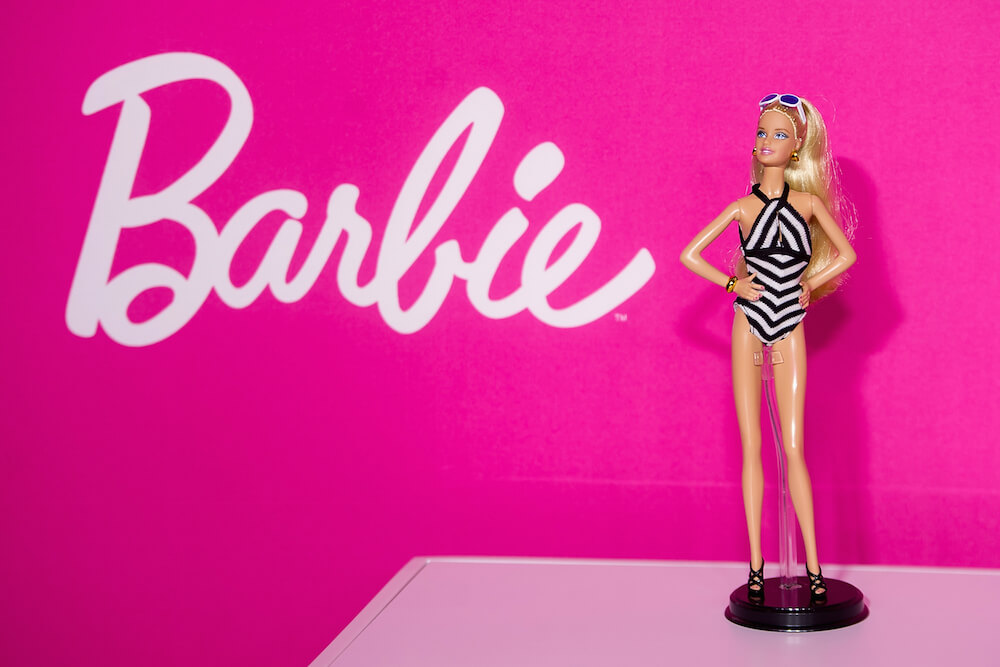Bloomberg –Mattel Inc.’s Hello Barbie, a new doll that can hold Siri-like conversations with kids, was meant to help spur a turnaround for the company. Instead, it’s drawn the ire of one of the toy industry’s most influential critics. The product, unveiled last month at the Toy Fair in New York, has been targeted by Susan Linn, the activist and academic who led successful campaigns against Baby Einstein videos and sexually-suggestive Pussycat Dolls. Hello Barbie’s web connection and speech-recognition software have the potential to violate children’s privacy, Linn alleges. And plus the doll is just plain creepy, she says. Linn and other detractors have managed to build a controversy around something that won’t even be on store shelves until November, putting Mattel on the defensive. Though the toymaker has no plans to pull the product, the situation has created one more headache for a company already struggling to reignite demand for Barbie – a doll that’s long been chided for its unrealistic body image. “The amount of press this is getting is unprecedented,” Linn, executive director of Campaign for a Commercial-Free Childhood, said in an interview. “There is an enormous amount of concern about this doll – all over the world now.” When Mattel gave an early look at the doll last month, it said it was trying to please Barbie’s young fans. The company’s research showed that what girls wanted most was to talk to Barbie. Mattel also really needs a new hit product. Sales of Barbie, which make up about 15 percent of companywide revenue, sank 16 percent to $1 billion last year. The slump contributed to the ouster of Chief Executive Officer Bryan Stockton in January after the stock tumbled 35 percent last year. If Hello Barbie catches on, it could help restore Mattel’s fortunes – and not just because it will freshen a 56-year-old brand. The dolls will be priced at $75, about four times as much as a typical Barbie. Hello Barbie works like this: a child pushes a button on the doll’s waist to ‘talk’to her. The speech is recorded and sent over the web via a Wi-Fi connection to the servers of Toy Talk, a software maker working with Mattel. Its software analyzes it and then responds back through the doll to make it seem like Barbie is conversing. Toy Talk has compared it to using Apple Inc.’s Siri software, but with more safeguards. “Girls have always wanted to have a conversation with Barbie,” Michelle Chidoni, a spokeswoman for El Segundo, California-based Mattel, said in an interview. “Through Toy Talk, we were able to create a safe platform that allows us to do so.” Barbie was already a well-worn punching bag for critics, who say her rail-thin body sends the wrong message to girls. Last year, her appearance on the cover of Sports Illustrated’s swimsuit issue drew a fresh round of flak. And Mattel apologized for a Barbie book called “I Can Be a Computer Engineer” that depicted her as less tech-savvy than boys. A rival doll with a more typical body also is trying to win market share. With Hello Barbie, Barbie’s foes saw an opportunity to recast the doll as Big Brother. Linn has touted the issue on shows such as ABC’s “Good Morning America,” and the debate has spread to Twitter, where users are assailing the product. The story has been picked up by publications such as Washington Post and Time, along with news outlets in Mexico, Australia and Spain. “Kids using Hello Barbie aren’t only talking to a doll, they are talking directly to a toy conglomerate whose only interest in them is financial,” Linn said when she kicked off her campaign against the product earlier this month. “It’s creepy – and creates a host of dangers for children and families.” Even if Mattel is a good steward of the data collected by Hello Barbie, hacker attacks of the Pentagon and Sony Corp. showed that information on servers is vulnerable, she said. Hello Barbie also isn’t just answering questions like Siri, but guiding a conversation, Linn said. Despite the outcry, Mattel isn’t backing down. The company continues to develop the doll with Toy Talk, which is ensuring that there are safety precautions in place, including parental controls, Mattel’s Chidoni said. Linn’s organization, which she co-founded 15 years ago, has taken on giant companies before. It lobbied Walt Disney Co. to stop promoting its Baby Einstein videos as educational, a campaign that ultimately led the company to offer refunds to parents. The group also says its criticism led Hasbro Inc. to shelve the Pussycat Dolls toy line, which was based on a female singing group known for skimpy outfits and sexual lyrics. The Campaign for a Commercial-Free Childhood, which has a four-person staff, has had some failures too. The group was unsuccessful in its attempt last year to get Girl Scouts USA to end a partnership with Barbie. Linn, who earlier in her career worked as a puppeteer on the “Mister Rogers’ Neighborhood” show, said she was already concerned that mobile apps were encroaching on children’s privacy. She sees Hello Barbie as a way to fight a broader battle. The 66-year-old had been waiting for the perfect product to raise alarm bells about Internet-connected devices, and Mattel made for a big, easy target. Linn, who also works as a psychologist at Harvard Medical School, said she won’t be satisfied until Mattel kills the doll. “The success or failure of Hello Barbie could have an impact on the toys coming down the line,” she said. “It’s another example of where technology can do something, but doesn’t necessarily mean it’s good to do it.”
Could the creepy talking Barbie be a threat to kids’ privacy?

Michael Stewart/WireImage

























